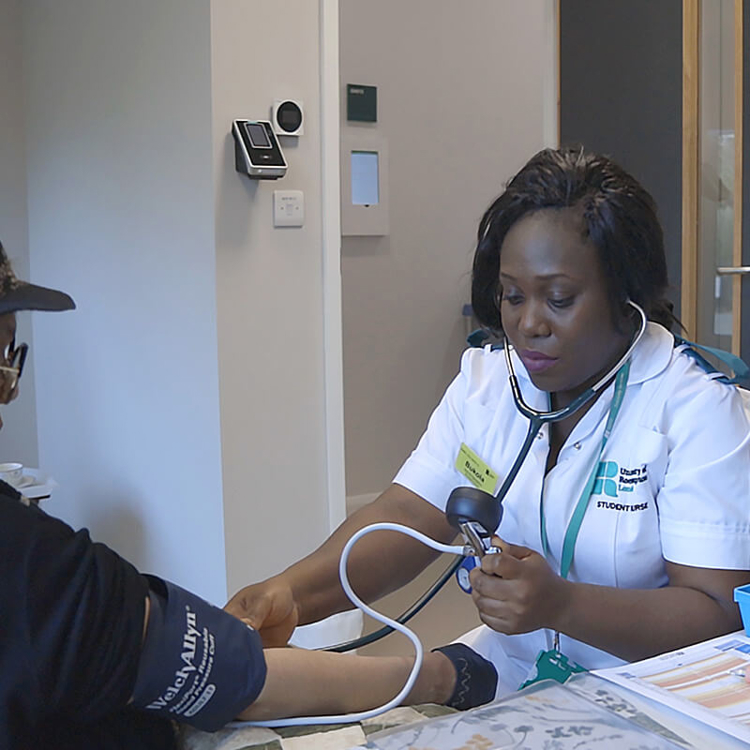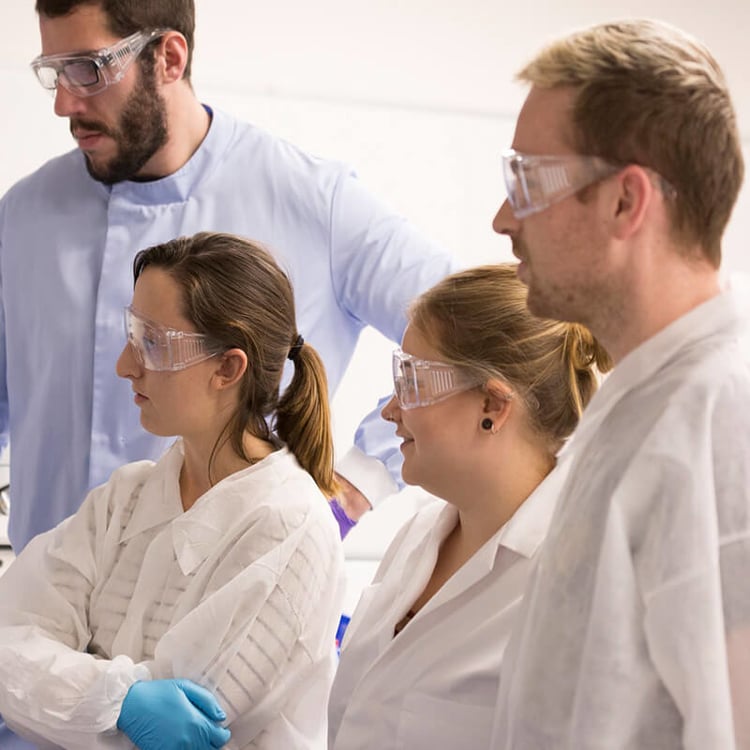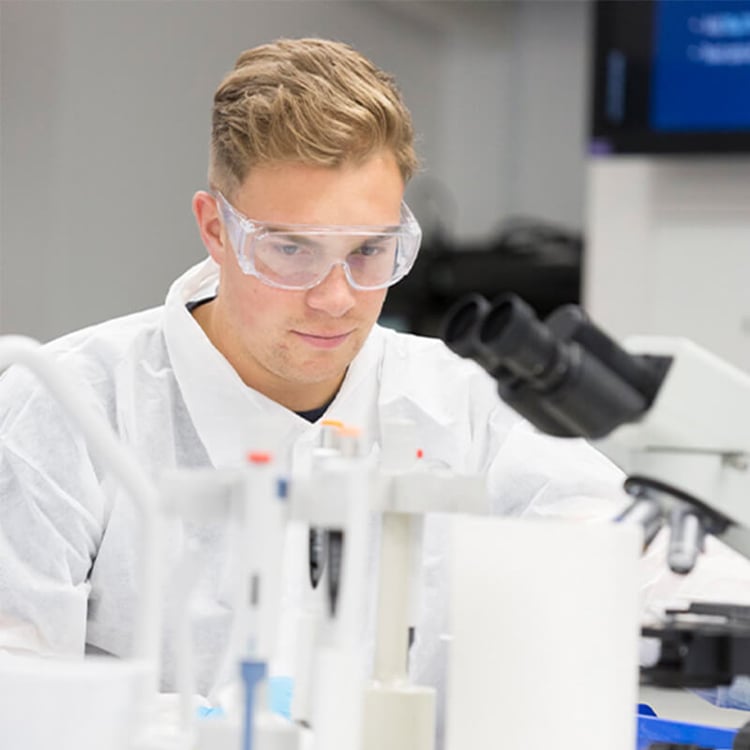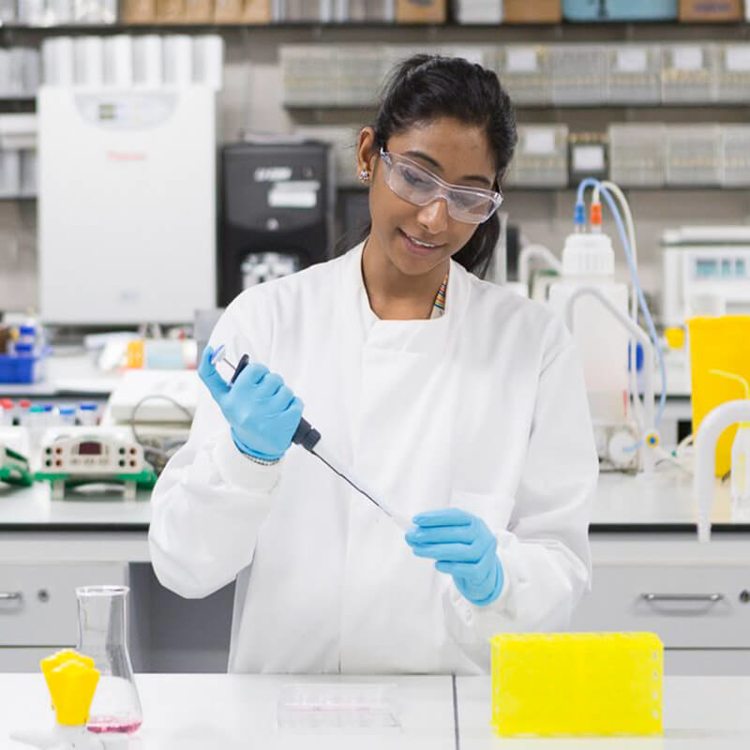You'll need:
112–128 UCAS points (or equivalent)
UCAS Code:
To apply for Roehampton campus, add B742 (no additional codes needed)
To apply to Croydon University Centre: on your UCAS application select campus code 'C' when adding Roehampton (R48) and BSc Mental Health Nursing (B742)
Start date(s):
September 2026
If you are passionate about supporting the mental health and wellbeing of others, our BSc Mental Health Nursing programme will equip you with the knowledge, skills and professional confidence to make a real difference.
Ranked in the top 10 in the UK by the Guardian University Guide 2024, this programme develops a holistic approach to caring for both physical and mental health across a range of settings.
Working alongside a dedicated team of experienced clinicians and academics, you will gain an in-depth understanding of:
- How the human body and mind work
- Supporting people to maintain health
- Treating and caring for individuals with long-term and acute mental health conditions
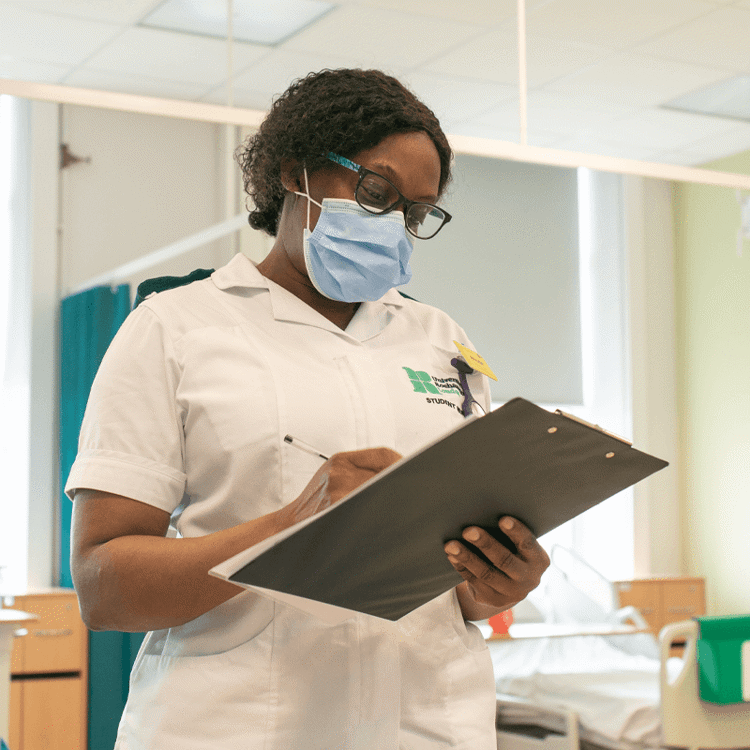
Did you know?
On successful completion, you will be eligible to apply for registration as a Mental Health Nurse with the NMC, ready to start a rewarding career in mental health care.
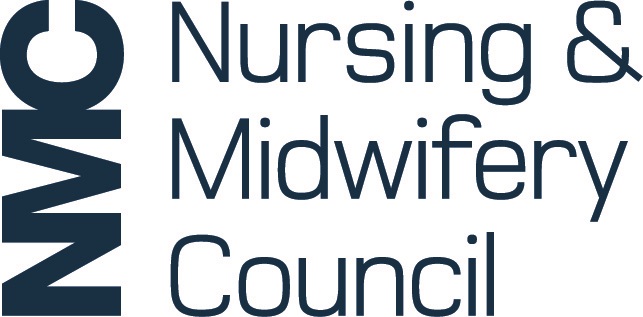
Our course ensures you graduate with a comprehensive professional skillset, meeting Nursing and Midwifery Council standards of proficiency.
You will develop expertise in:
- Health assessment
- Holistic care planning
- Evidence based practice
- Clinical skills and medication management
- Communication, teamwork and leadership
You will also cultivate the values of the NHS Constitution, including compassion, dignity and respect, and gain the confidence to communicate with people from diverse backgrounds.
2nd in the UK for student satisfaction in Nursing
(Complete University Guide 2025)

Ranked 1st in London for Assessment and Feedback, Academic Support and Student Voice
National Student Survey 2024 for Adult Nursing

Top 10 in the UK for Nursing
(Guardian University Guide 2024)

Module details: In this module, you will develop the foundational knowledge and skills needed to begin your journey as a Mental Health Nurse while transitioning into Higher Education. You will enhance your academic abilities, including writing, literature searching, referencing, and digital literacy, enabling confident use of technologies such as generative AI. Core nursing theory, assessment tools, the nursing process, and person-centred care will underpin your professional development, alongside key policies guiding safe and accountable practice. Through case studies, reflective exercises, seminars, workshops, and digital learning, you will build the confidence, critical thinking, and compassionate approach required for future nursing practice.
The aim of this interprofessional module is to introduce you to the key concepts and core foundations for the scientific study of life. A strong interprofessional ethos is built by bringing you and other students together and creating the opportunity to interact with and learn alongside students from a breadth of professional programmes. Subsequent modules will build on and integrate the strong foundations gained through this module to support the development of required profession specific knowledge and skills. You will develop a solid understanding of the structure and function of living organisms through the study of anatomy and physiological systems relevant to your programme of study. You will explore core physiological principles across the lifespan and, where appropriate, examine deviations from normal function, including aspects of pathophysiology.
Module details: In this module, you will explore the principles that underpin public health, health promotion, and illness prevention, focusing on how nurses help improve population wellbeing. You will examine social determinants, sustainable approaches to care, and the use of evidence and digital tools to enhance safety and quality. Learning activities will include lectures, seminars, discussions, case studies, and community focused tasks that deepen your understanding of health inequalities and prevention strategies. Through a written assignment centred on a health promotion campaign, you will apply theory to practice and build the knowledge and confidence needed to contribute to equitable, effective care in diverse settings.
Module details: In this module, you will begin developing core nursing capabilities through an integrated blend of placement learning and simulation. You will work with service users and professionals in diverse settings while holding supernumerary status so you can focus on your development. Preparation through online study, workshops, and skills sessions builds confidence for practice. You will take part in immersive simulations, virtual reality activities, and collaborative exercises informed by service users. Guided reflection supports your understanding of the NMC Code and current standards. Key themes include communication, safety, assessment, teamwork, dignity, and planning care, with all practice hours contributing to registration requirements.
These are the current planned modules on this course and may be subject to change.
Please note that these modules are subject to validation by the Nursing and Midwifery Council (NMC).
Module details: In this module, you will deepen your understanding of long term conditions within a rapidly evolving health landscape shaped by new national strategies. You will explore how biopsychosocial factors influence recovery and how evidence based pharmacological and non pharmacological approaches support effective management. Learning will focus on partnership working with the MDT, individuals, and carers to promote independence, healthy choices, and self management. Through workshops, seminars, online study, and interactive activities, you will examine common conditions and co morbidities and consider lived experiences. A case study assessment will consolidate your knowledge and prepare you for future nursing practice.
Module details: In this module, you will develop the skills needed to recognise and manage acute deterioration in adults across both physical and mental health contexts. You will apply your understanding of anatomy, physiology, pathophysiology, and pharmacology to structured A to E assessment and safe clinical decision making. Key emergencies, including airway and breathing problems, circulatory issues, stroke, diabetic crises, and acute mental health decline, will be explored alongside evidence based interventions. Through lectures, workshops, and simulation, you will strengthen communication, assessment, and escalation skills. A practical OSCE will assess your ability to respond to an unwell adult and propose appropriate next steps in care.
Module details: In this module, you will strengthen your research abilities through interprofessional learning that brings together students from a range of health and social care programmes. You will build confidence in appraising quantitative, qualitative, and mixed methods evidence, while exploring research design, ethics, and data analysis in relation to person centred care. Guided activities will develop your literature searching and synthesis skills, preparing you to plan a future scoping review. You will also examine digital healthcare and the ethical use of AI in research. The knowledge and scholarly thinking gained will support your wider academic work and future professional development.
Module details: In this module, you will advance the practice foundations established earlier by applying core nursing skills to more complex scenarios in both placement and simulation settings. You will prepare through online study, workshops, and clinical skills sessions that develop assessment, diagnostics, medicines management, and care planning. Learning will include immersive and virtual simulations, as well as Forum Theatre informed by service users and carers. Revisiting earlier case studies with added complexity, you will explore human factors, delegation, de escalation, mental health assessment, end of life care, recognising deterioration, and emergency response, strengthening confidence and competence across the NMC proficiencies.
These are the current planned modules on this course and may be subject to change.
Please note that these modules are subject to validation by the Nursing and Midwifery Council (NMC).
Module details: In this module, you will develop the knowledge and skills to deliver integrated, person-centred care for people with enduring mental health conditions in secondary and tertiary settings. You will learn to coordinate services across providers and sectors, collaborate with multidisciplinary teams, involve service users, and navigate legal and policy frameworks. Through real-world scenarios and simulations, you will explore community-focused and digital models of care, apply principles of complex care, and strengthen clinical reasoning and ethical decision-making. The module prepares you to lead, advocate, and provide safe, inclusive, and coordinated care, fully aligning with NMC standards and professional competencies.
Module details: In this module, you will strengthen your readiness to move from student to registered nurse by deepening your understanding of accountability, legal requirements, and ethical practice. You will develop confidence in leading and coordinating care, managing patient groups, and using safe prioritisation and delegation strategies. Learning in class will complement your experiences in practice as you build your supervision and feedback skills and refine your approach to leadership within interprofessional teams. You will also prepare for your first post through focused career development activities. Your progress will be demonstrated through a professional portfolio that evidences reflection, growth, and clinical insight.
Module details: In this module, you will apply your theoretical knowledge to real-world challenges through independent and collaborative projects. You will identify a need within your discipline, gather and evaluate evidence, and use critical thinking to plan, develop, and implement a capstone project. Building on problem-solving, research, and communication skills gained throughout your programme, you will deliver a project that is relevant to your field, which may include community initiatives, innovation, or quality improvement. All projects are designed to meet programme-specific and professional standards, enabling you to demonstrate practical application of your learning and readiness for future professional practice.
Module details: In this module, you will consolidate your learning and prepare for professional practice through placements and simulated learning that reflect the full scope of the NMC proficiencies. You will refine core clinical abilities with increasing complexity, including assessment, history taking, diagnostics, care procedures, leadership, and medicines management, supported by updates to mandatory training. Through varied simulation methods, you will revisit and integrate earlier case studies while exploring themes such as speaking up, difficult conversations, bereavement, patient safety, duty of candour, and leading care. This experience will strengthen your confidence to practise independently under indirect supervision as you move towards registration.
These are the current planned modules on this course and may be subject to change.
Please note that these modules are subject to validation by the Nursing and Midwifery Council (NMC).
£5000 NHS Bursary
We are committed to helping you succeed, and that includes easing the financial pressures of training for a career in nursing.
Home Nursing students receive a non-repayable NHS payment of £5,000 each academic year, with further funding available for eligible circumstances.
This support can make a real difference while you focus on developing your skills and preparing for a fulfilling career.
Careers
Make a real difference in people’s lives and help shape the future of healthcare.
Our BSc Mental Health Nursing degree equips you with the skills, knowledge and confidence to succeed in a wide range of roles across the health and care sector.
Graduates go on to work in settings such as:
- Community nursing teams, including District Nurse, Health Visitor and School Nurse
- General Practice Nursing
- Care homes
- Hospices and rehabilitation centres
- Hospitals, including wards, A&E, ITU, outpatients and theatres
- Prisons and custody units
- Specialist teams, such as Respiratory, Oncology and Tissue Viability
- Research
- Education
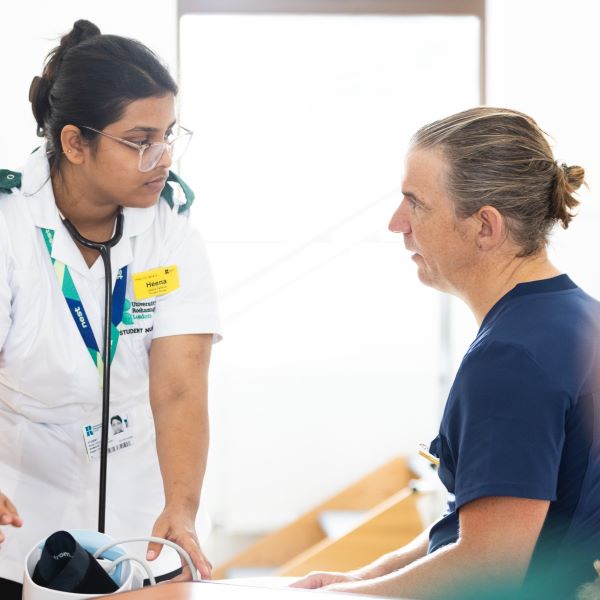
The Student Futures team is here to support you throughout your time at Roehampton and beyond.
They offer services tailored to your needs, helping you take confident steps towards your future.
You’ll have access to a wide range of career workshops and events, where you can engage with employers and develop the skills you need to succeed in the workplace.
These opportunities will help you build your CV, prepare for interviews, and connect with successful Roehampton graduates who are thriving in their careers. You’ll also be able to engage with our partners across London and beyond.
Wherever you want to go in the future, you'll be preparing for the world of work from your very first day.
Learning & assessment
How you'll learn
Your BSc Children’s Nursing degree combines classroom learning with hands-on practice in our Clinical Simulation Centres, helping you gain the confidence to apply your skills safely in real clinical settings.
Teaching is led by experienced academics and practising professionals and incorporates lectures, seminars, group work, online learning and reflective practical exercises.
You will also study alongside healthcare professionals from other disciplines, developing a broad understanding of modern nursing. This includes its role within 21st century health and care services, the shift towards integrated community care under the NHS Long Term Plan, the importance of evidence based practice for patient safety, and the value of building strong professional relationships with patients, families and colleagues.
Throughout your training, equal emphasis is placed on physical and mental health, ensuring parity of esteem is central to your approach to care.
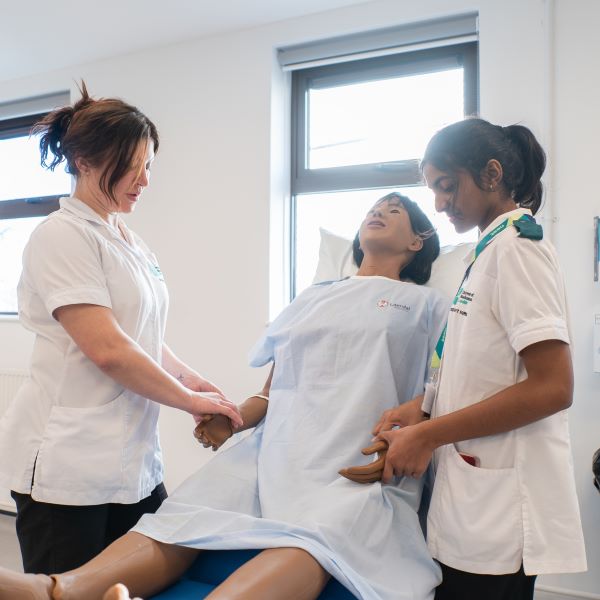
How you’ll be assessed
You will build clinical skills and academic knowledge through practical and academic assessments, preparing you for a career in mental health nursing.
These include:
- Reflective and case study based assignments
- Exams
- Presentations
- Safety and quality improvement projects
Your practical skills will be assessed through simulation-based activities in our Clinical Simulation Centres, allowing you to practise safely and receive detailed feedback.
On placements, both clinical and academic staff will evaluate your performance and professional development, ensuring you are confident and competent before you graduate.
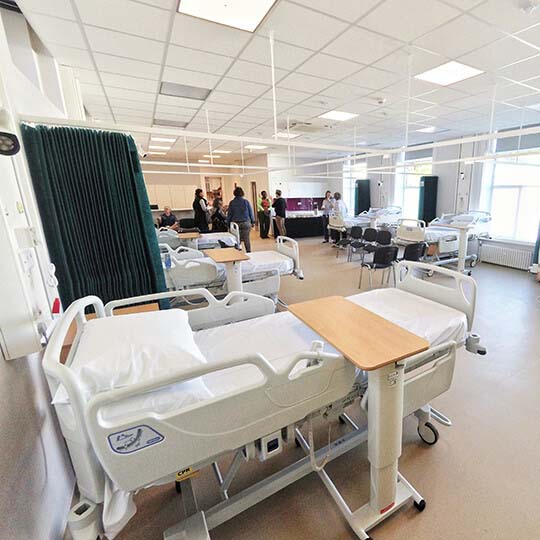
Hands-on learning in world-class facilities
Your training takes place in the modern, purpose built Clinical Simulation Centre at Froebel College, designed to build your confidence and competence in real clinical scenarios. You will practise key skills alongside fellow students, service users, carers, role players and high-tech patient simulators.
The centre includes the Froebel Ward, a fully functional six-bed hospital ward, along with mock consulting rooms, patient homes and a simulated apartment, all equipped with advanced technology and video streaming to support learning and feedback.
You will also use the Mary Seacole Health Innovation Centre at Digby Stuart College, a leading multi-disciplinary hub for primary and community care. These facilities provide a supportive, realistic environment to develop your skills before applying them on real-world placements.
Study this course at Croydon University College
Our nursing degrees are delivered at Croydon University Centre, allowing you to study in a location that fits your lifestyle.
This flexible option means you can access high quality teaching, support and facilities while staying connected to your local community.
It is an ideal choice if you want the full Roehampton experience with the convenience of learning closer to home.
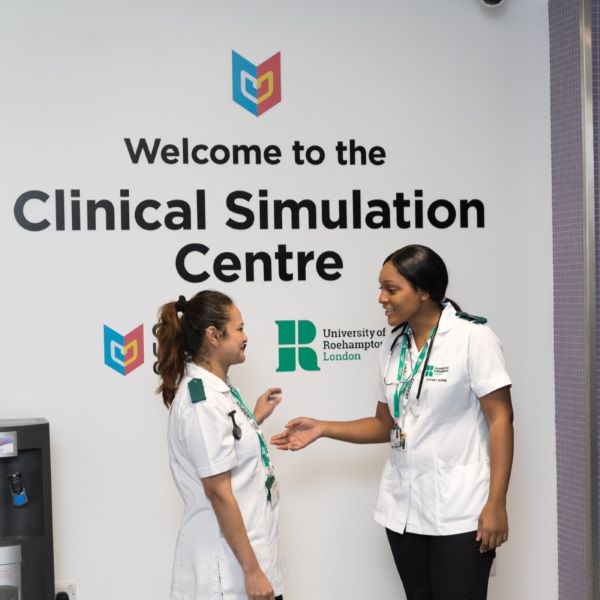
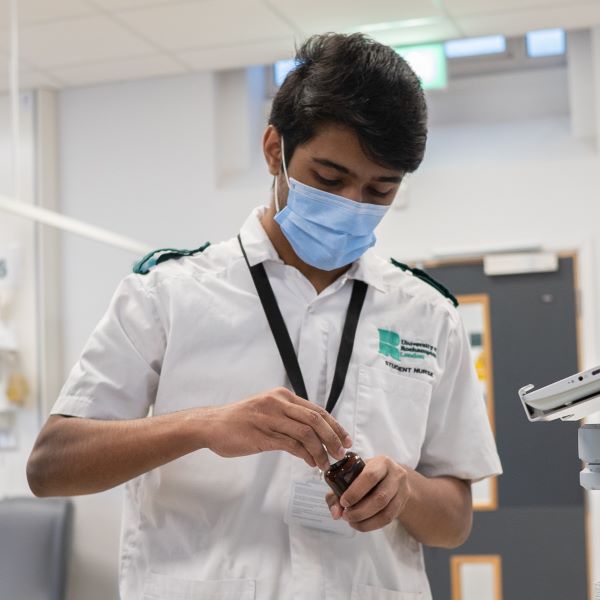
Gain real world skills on placement
Professional placements are a core part of your training, giving you the experience and confidence to step into your first role as a registered nurse.
Our placement network includes:
- St George’s University Hospitals
- Kingston Hospital
- Epsom and St Helier Hospitals
- Croydon Health Services
- Imperial College Hospitals
- London Northwest University Healthcare Hospitals
- North Middlesex University Hospital
- Your Healthcare
- Hounslow and Richmond Community Healthcare
- Sutton Health and Care
- Croydon Health Services
- Surrey Heartlands
Across Sutton, Kingston, Richmond, Croydon, Merton and Wandsworth Training Hubs
- Southwest London and St George’s Mental Health Trust
- The Priory
- Holybourne Hospital
- Blackheath Rehabilitation Centre
- Princess Alice Hospice
- St Raphael’s Hospice
- Trinity Hospice
- Royal Hospital for Neurodisability
- Local care homes
Throughout your course, you will work with a wide range of placement partners, allowing you to develop practical skills in varied clinical environments and understand the full landscape of modern healthcare
You can also arrange an elective placement abroad, giving you the chance to broaden your experience and learn within a different healthcare system.
Open days
Get a real taste of our campus, community and what it’s like to study at Roehampton
Applying
Full-time UK undergraduate students apply through UCAS.
This course is subject to validation.
Entry tariff
112–128 UCAS points (or equivalent)
Looking to work out your UCAS points or find out about our entry requirements? Find out more.
When we consider applications to study with us, we form a complete view of your achievements to date, and future potential, and can offer flexibility in entry requirements. Find out more about our Contextual Offer scheme.
Specific entry requirements
A levels/BTEC (or equivalent qualification): at least one science or health-related subject
GCSE (or equivalent) grades 4/C in Maths and English (at least one science subject desirable).
Applicants will also undertake an interview. Successful applicants will need to complete an Occupational Health (OH) Check and an enhanced DBS (Disclosure and Barring Service) Check.
Non-native English speakers who do not have GCSE English or equivalent at grade 4/C or above require an IELTS score of at least 6.5 in writing and at least 7.0 in reading, listening and speaking, with a minimum overall score of 7.0. Please refer to the NMC website for more details.
General entry requirements
International undergraduate students apply through our direct application system.
This course is subject to validation.
Entry tariff
112–128 UCAS points (or equivalent)
Looking to work out your UCAS points or find out about our entry requirements? Find out more.
When we consider applications to study with us, we form a complete view of your achievements to date, and future potential, and can offer flexibility in entry requirements. Find out more about our Contextual Offer scheme.
Specific entry requirements
A levels/BTEC (or equivalent qualification): at least one science or health-related subject
GCSE (or equivalent) grades 4/C in Maths and English (at least one science subject desirable).
Applicants will also undertake an interview. Successful applicants will need to complete an Occupational Health (OH) Check and an enhanced DBS (Disclosure and Barring Service) Check.
Non-native English speakers who do not have GCSE English or equivalent at grade 4/C or above require an IELTS score of at least 6.5 in writing and at least 7.0 in reading, listening and speaking, with a minimum overall score of 7.0. Please refer to the NMC website for more details.
General entry requirements
Fees and funding
UK students
Tuition fees
| Entry date | Undergraduate Year 1 |
|---|---|
| September 2026 | £9,790 |
Prices shown are for the first year of your degree.
Funding your studies
We also provide other ways to support the cost of living, including on-campus car parking, hardship support and some of the most affordable student accommodation and catering in London.
International students
Tuition fees
| Entry date | Undergraduate Year 1 |
|---|---|
| September 2026 | £20,280 |
Prices shown are for the first year of your degree.
Funding your studies
We also provide other ways to support the cost of living, including on-campus car parking, hardship support and some of the most affordable student accommodation and catering in London.


